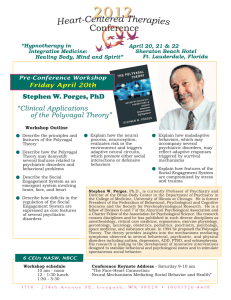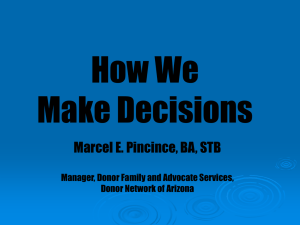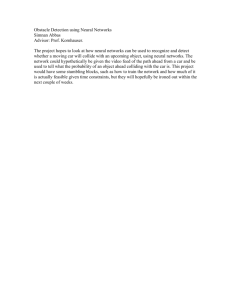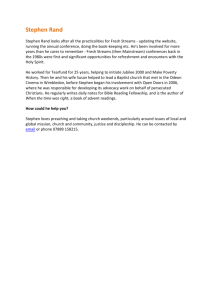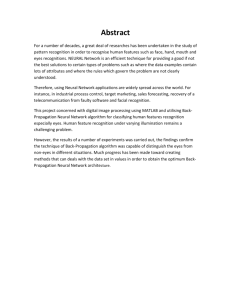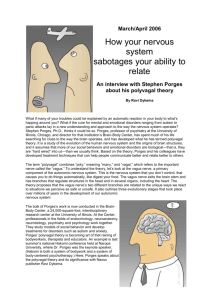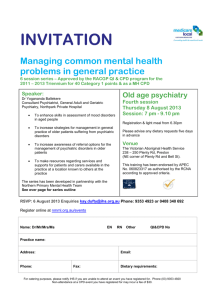The polyvagal theory provides a new perspective of the relation
advertisement
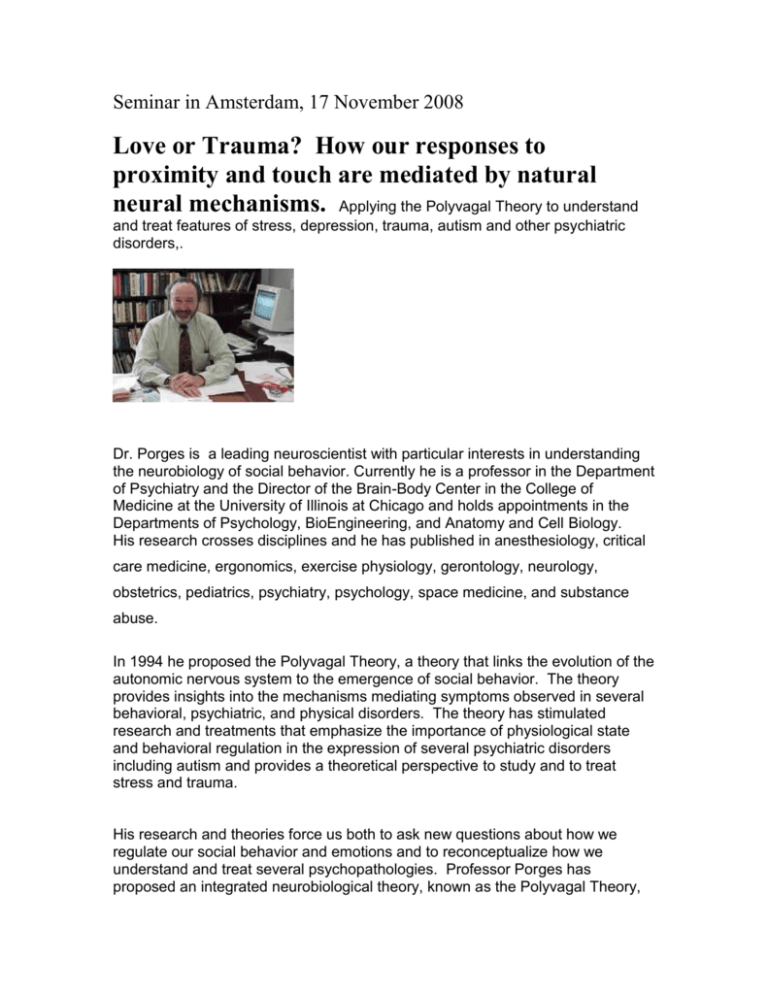
Seminar in Amsterdam, 17 November 2008 Love or Trauma? How our responses to proximity and touch are mediated by natural neural mechanisms. Applying the Polyvagal Theory to understand and treat features of stress, depression, trauma, autism and other psychiatric disorders,. Dr. Porges is a leading neuroscientist with particular interests in understanding the neurobiology of social behavior. Currently he is a professor in the Department of Psychiatry and the Director of the Brain-Body Center in the College of Medicine at the University of Illinois at Chicago and holds appointments in the Departments of Psychology, BioEngineering, and Anatomy and Cell Biology. His research crosses disciplines and he has published in anesthesiology, critical care medicine, ergonomics, exercise physiology, gerontology, neurology, obstetrics, pediatrics, psychiatry, psychology, space medicine, and substance abuse. In 1994 he proposed the Polyvagal Theory, a theory that links the evolution of the autonomic nervous system to the emergence of social behavior. The theory provides insights into the mechanisms mediating symptoms observed in several behavioral, psychiatric, and physical disorders. The theory has stimulated research and treatments that emphasize the importance of physiological state and behavioral regulation in the expression of several psychiatric disorders including autism and provides a theoretical perspective to study and to treat stress and trauma. His research and theories force us both to ask new questions about how we regulate our social behavior and emotions and to reconceptualize how we understand and treat several psychopathologies. Professor Porges has proposed an integrated neurobiological theory, known as the Polyvagal Theory, that proposes that shifts in our physiological state can color or distort our perception of the world and trigger either social engagement behaviors leading to close proximity and intimacy or defensive strategies that promote either fight/flight or shut-down behaviors. The Polyvagal Theory emphasizes the evolution of the autonomic nervous system and proposes that important features of our social engagement and emotional behaviors are biologically driven and relatively insensitive to cognitive mediation and learning strategies. Professor Porges proposes that clinical and educational strategies can be more effective if they are delivered with an appreciation of the individual’s physiological state. 17 November Stephen Porges will share his knowledge and experience with Dutch psychiatrists, therapists and brain-body professionals in De Rode Hoed in Amsterdam. In the morning he will explain the Polyvagal Theory and how the theory provides insights into the neural mechanisms mediating the atypical affective and social features of several psychiatric disorders. In the afternoon the clinical implications of the theory will be discussed. He will discuss direct applications of his methodologies for the assessment and treatment of autistic individuals. Specifically, he will describe the Listening Project Protocol, an acoustic stimulation procedure that is effective in reducing hearing sensitivities and stimulating social engagement behaviors in autistic children. In addition, he will describe the new methods he has developed to assess affect awareness, auditory hypersensitivity, and auditory processing that are related to several clinical diagnoses. He will also describe his research on Borderline Personality Disorder, Fragile-X-Syndrome, Selective Mutism, and HIV. Based on 40 years of research on heart rate variability, Professor Porges conceptualized the Polyvagal Theory. Measures of heart rate variability provide “windows” to the physiological states described in the Polyvagal Theory. Consistent with this theme relating neural regulation of the heart to behavior, Kees L.Blase will elaborate on the important role of Heart Rate Variability and heart coherence training as a method to enhance social engagement behaviors. In 2002, Kees L. Blasé introduced the HeartMath-method working at the National Centre for School Improvement of the Netherlands. Kees L. Blase has lectured on heart coherence internationally (e.g., Germany, U.S.A., New Zealand, and Albania). During past few years he has focused his work on youth care, child psychiatry and trauma healing. Program: 9.30-10.00: Registration, coffee and tea 10.00-11.30: Stephen Porges: The Polyvagal Theory- Part I: How neural regulation of brain-face-heart connections mediate affect and social behavior 11.30-11.45: Break 11.45-12.45: Kees Blase: heart coherence and social engagement 12.45-14.00: Lunch 14.00-15.30: Stephen Porges: The Polyvagal Theory – Part II: Clinical implications and insights into the role neural regulation of the heart plays in mediating vulnerability, resilience, and recovery to both mental and physical health. Dr. Stephen Porges is both a prominent scientist and generous humanitarian. His leading edge research on the nervous system has informed practical solutions to many of the problems we face in education, therapy and society. His work gives us a deep understanding of just what it takes to make children feel safe and wanted so that they develop into confident, cooperative, resilient and joyful adults. In addition, he offers practical solutions for such disorders as hyperactivity, attention deficit, and the autistic spectrum disorders. I recommend Stephen’s work to all therapists, healers, educators and parents. He has been a valued colleague of mine for over 30 years. Stephen is truly a world treasure. Peter A Levine, PhD Author of Waking the Tiger, Healing Trauma Prof Stephen Porges: -Dr. Porges is currently a professor in the Department of Psychiatry and the Director of the Brain-Body Center in the College of Medicine at the University of Illinois at Chicago -He holds appointments in the Departments of Psychology, BioEngineering, and Anatomy and Cell Biology. -Prior to joining the faculty at the University of Illinois at Chicago, Dr. Porges served as Chair of the Department of Human Development and Director of the Institute for Child Study at the University of Maryland. -He is a former President of the Society for Psychophysiological Research and has been President of the Federation of Behavioral, Psychological and Cognitive Sciences, a consortium of societies representing approximately 20,000 biobehavioral scientists. -He was a recipient of a National Institute of Mental Health Research Scientist Development Award. -He has chaired the National Institute of Child Health and Human Development, Maternal and Child Health Research Committee and was a visiting scientist in the National Institute of Child Health and Human Development Laboratory of Comparative Ethology. -He was awarded a patent on a methodology to describe neural regulation of the heart. He is a neuroscientist with particular interests in understanding the neurobiology of social behavior.
